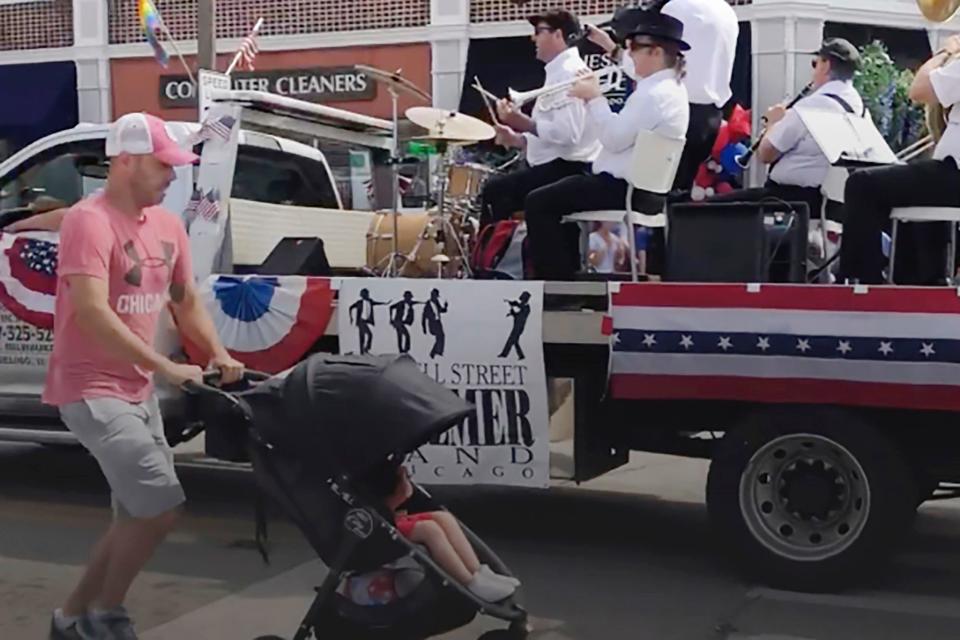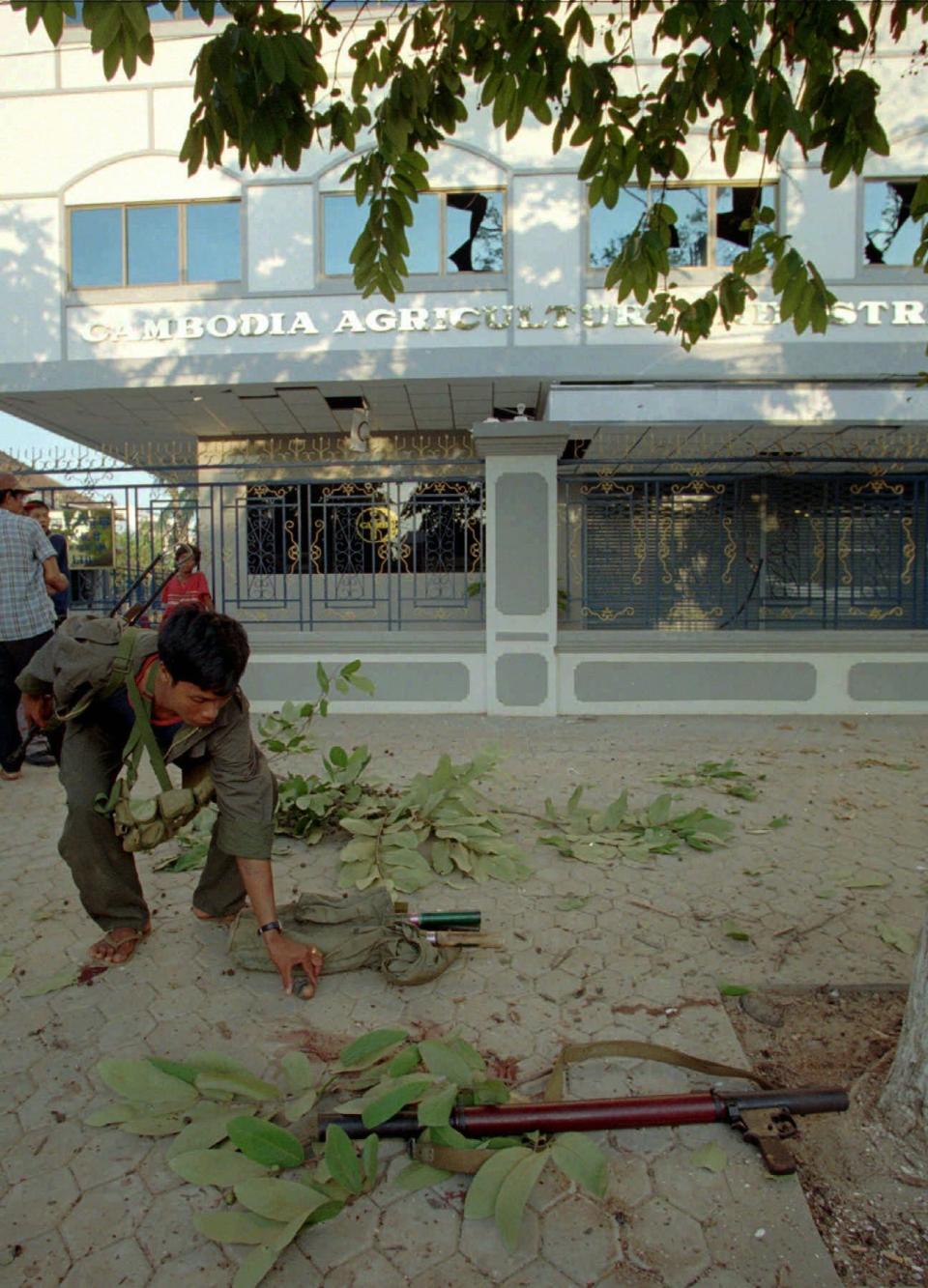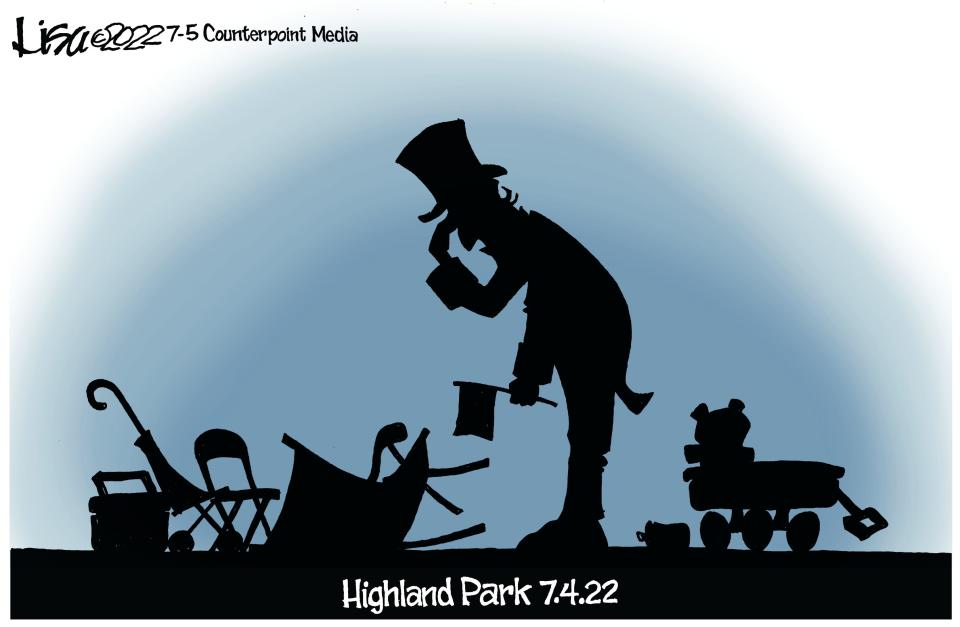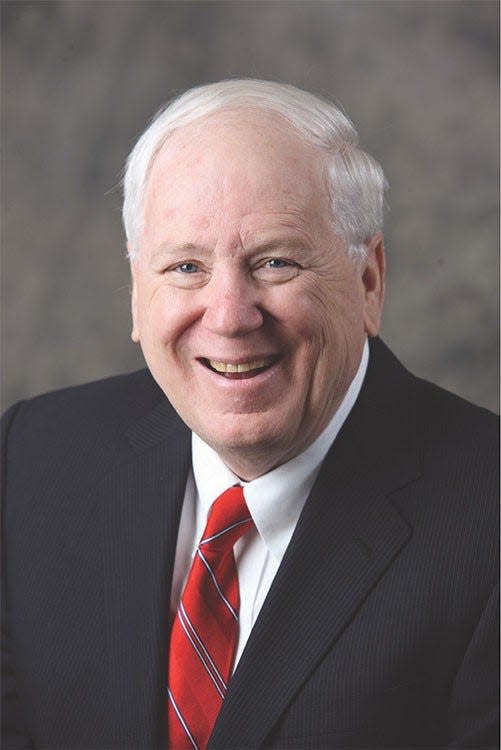Opinion: I found out 25 years ago what a father thinks during a mass shooting
Of all the horrible images and tragic stories to emerge from the wanton and despicable slaughter of Fourth of July parade attendees in Highland Park, Illinois, the most heart-rending was that of Aiden McCarthy, the 2-year-old boy who was saved from death by being covered by his father's body.
Aiden's parents, Irina and Kevin, were found dead next to each other.
Aiden survived because, somehow, in the few seconds that his 37-year-old father had to react as the shooting began, some parental instinct apparently caused him to put his body between the shooter and his progeny.
We, of course, can never know what thoughts went through Kevin and Irina's minds in that incredibly brief period before their deaths. But I believe I have a clear insight into what they were thinking — because I went through that terror-filled experience.

It took place shortly before July 4 in 1997 when I was serving as American ambassador in Cambodia. With the end of the school year, my wife, Le Son, and our three teen and tween children had just arrived in Phnom Penh so we could spend the summer months together as a family.
More: Highland Park rallied to help toddler after his parents were killed. Now they've raised $2 million.
More: A letter to Aiden, 2-year-old left an orphan by Highland Park shooting: 'We failed you'
Cambodia seemed to be at peace. The Khmer people, who had suffered so incomparably under the genocidal Khmer Rouge (almost 2 million of the total population of 7 million had perished under the draconian rule of Pol Pot) were slowly recovering under a U.N.-supported peace process and a democratically elected coalition government.
That night, however, the cease-fire that had provided a respite from two decades of civil war abruptly ended as fighting broke out between the two main factions in the heart of the capital city. The very first act was the firing of a rocket that, without any warning, struck my ambassadorial residence, blowing in the windows and narrowly missing coming into the room where we were all assembled watching a movie. We all could have been wounded or killed.
This was instantaneously followed by an outbreak of automatic-weapons fire surrounding our house, which was suddenly engulfed in a firefight. The gunshots were loud and numerous.
It was in that period of a few seconds that I acted, following that parental instinct deeply embedded in me. Pulling our three children to the floor, joined by my wife, we desperately covered them with our bodies.

Now, even 25 years later, my clear recollection is of lying there and praying, as I had never prayed before, that any bullets that came into our home would kill me and not our children. i have to believe that Kevin and Irina McCarthy had that same supplication right before they died in Highland Park.
None of us were harmed by that initial fusillade. As the shooting seemed to slightly subside, we sought to move our children to a more protected location.
More: Opinion: When Iowans represented the government in Indochina
More: Inside Robert D. Ray's extraordinary humanitarian legacy
Another story emanating from Highland Park was of a parent who, seeking to protect his two kids, put them into a garbage bin with the thought that the metal walls would deflect any high-velocity rounds. We found a similar protective capacity in the bathtub in a bathroom in the center of the house, farther away from windows.
I should add that, as this was all transpiring, I had to simultaneously address the security of all Americans in the country. As I was physically covering our children while lying on the floor, I reached up to grab my radio that linked me to my senior embassy staff, and issued the order to activate our consular warden network to alert all American citizens to take shelter and avoid moving about the city.
With my other hand, I was dialing the phone number of the State Department 24-hour Operation Center (which I had memorized) to report our embassy's now much more precarious security situation, which was further exacerbated by the absence of any Marine guards. We were literally an embassy like Benghazi.
Over the next days and weeks, our small embassy earned special recognition for our actions in providing interim protective arrangements for all Americans at a large hotel. We beat the French Embassy in renting the hotel's ballroom to serve as a safe haven to which several thousand of our citizens relocated before we evacuated almost all of them from the country. In the absence of virtually all of the local hotel staff, my wife and 12-year-old daughter, Kelly, worked in the kitchen preparing food.

We learned another lesson from that experience — that when a violent political crisis is over, it really isn't over. Two years later, in 1999, our daughter, now high school age, and I arrived back in Des Moines in July. Having retired from my 32-year-long diplomatic career, I was about to take up leadership of the World Food Prize. Kelly was preparing to start training with the Dowling Catholic high school swim team.
One evening right around July 4, as she and I were sitting in our home on 56th Street in Des Moines, we were suddenly transported back two years to Phnom Penh by the rat-tat-tat-tat sound, which almost perfectly replicated those automatic weapons firing on that night in Phnom Penh. We were both instinctively starting to move to the floor when we locked eyes, and then I said: "I think it's firecrackers going off for the Fourth of July."
For everyone caught in that Highland Park mass shooting, on every future Fourth, when they hear the sound of firecrackers going off, they will be painfully transported back to those terror-filled moments they experienced in 2022.

Kenneth Quinn is former U.S. ambassador to Cambodia, part of over 50 years involved in foreign affairs. He is president emeritus of the World Food Prize.
This article originally appeared on Des Moines Register: Opinion: A father's thoughts during a mass shooting

